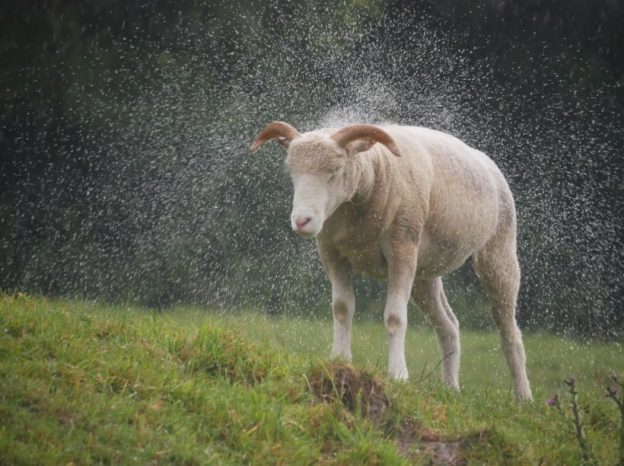Sheep are at their happiest whilst outside, even during winter. They have thick, woolly coats that keep them safe from the cold. Also, they have an optimised digestive system. It processes grass at different times of the year. This is the case even when the nutritional value wanes. As a result, we need to know how to make the best of it, particularly if they are a small flock. You can then ensure you provide sufficient animal feed.
The grass
The quality of grass, as well as its growth rate, deteriorates over autumn and winter. So, it is preferable to ensure we can supply bigger areas. Or, we can introduce strip gazing to guarantee every small section is sufficiently utilised prior to moving onto the next. This approach may not be advantageous to everything since it consists of more handling. For a person with enough land to subdivide it, it can mean longer resting times for the grass in between grazing phases.
Whatever the case, always attempt to ensure your stocking density is slightly below what your land is theoretically capable of sustaining. Plus, you must make sure you avoid nasty surprises. This is in regards for unavailability of forage/grass or bad weather. Sheep are capable of withstanding dry and cold conditions. Yet, they would struggle if they had to remain on extremely wet ground with poor grass cover. The mud would end up covering their fleece, rendering it too damp.
The more native your sheep are, the less human input that is necessary. However, during times of harsh weather, they would appreciate a bit of silage or hay as top up animal feed. For the best advice here, you should talk to your vet.
Concentrate the top ups
These are is a good idea too. The majority of commercial breeds are normally higher maintenance. You could be attending to breeding ewes that could be carrying multiple lambs. If so, you should prepare and think ahead for terrible weather.
Ewe lambs might be better trained to consume concentrates and silage for a short amount of time. The advantage here would be them not having to learn in their glimmer winter while they are pregnant. Any sudden feeding alterations, particularly with pregnancy, aren’t advised. Talk to us if you need any animal feed products.
Supplement forage
Consider supplement forage as well. For all sheep, the grass cover could be lacklustre and the weather may deteriorate. Here, see to it that you provide decent quality silage or hay. Think about access and what you’d need for the amount of sheep you have there.
Bigger breeds would need more forage. An adult ewe is capable of consuming 2-3% of her bodyweight each day in dry matter. For instance, a 70kg ewe would demand 1.4-2.1kg daily. This isn’t the same as fresh forage. Dry matter is able to vary from 20% of grass to roughly 50% in silage crops, as well as 80% in hay. Everything else is water. What this means is that one kg of grass is capable of supplying 200g of dry matter. At the other end of the spectrum, a single kg of hay supplies >800g of dry matter.
To obtain the rough quantity 2kg/head/day of forage dry matter, you must ensure access to 10kg of grass daily. Alternatively, you need 2.5kg of hay or around 4kg of silage.
In wet, cold weather, grass dry matter could be as low as 10-15%. As such, contingency planning is necessary to see that sheep get enough nutrition and don’t lose weight. Providing alternative animal feed is usually wise between January and March. It can also extend to either side depending on where you live, the flock’s health, and weather.
Monitor body condition scores
One last point is that monitoring the body condition score is even more critical in winter. This is especially true with pregnant ewes that cannot lose too much condition. Some can land close to lambing with BCS under 2.5 or over 4. If they do, they are more in danger of metabolic conditions like prolapses or twin lamb disease. This is the case even if you feed them properly.
Take every chance to do a rapid BCS session. Also, pay attention to how well the ewes are preserving condition. If it seems they are losing weight, don’t feed them lots at once. Instead, use more forage as gradually as possible.
Talk to us about animal feed
At JS Hubbuck Ltd, we’ve worked hard to provide the agricultural community with quality goods for decades. For example, we have feeds that are ideal for your livestock. There are plenty of other areas we can help you with too. So, if we can do anything for you, please let us know.

